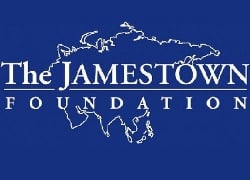“The Day of Freedom” and Perspectives for the Opposition in Belarus
9- By David Marples, Jamestown Foundation
- 3.04.2012, 12:13

The harassed opposition has several months to adopt a united stance before the September elections.
On March 25, between 2,000 and 4,000 people took part in a demonstration in Minsk to mark “Freedom Day,” the 94th anniversary of the formation of the Belarusian National Republic (BNR) in 1918. The rally had been sanctioned by the Minsk City Council and was peaceful, but nonetheless took on an anti-government hue with cries of “Freedom to political prisoners!” and “Lukashenka is the road to nowhere!”
The remembrance of the BNR comes at a time when many leading members of the opposition have fled abroad, permanently or temporarily. Others are in jail or penal colonies. Still others remain free but are closely monitored by the authorities. At different levels of society a new debate has started about the viability and purpose of the BNR, and whether this now dated exiled government should be retained or a new formation needs to be put in place, given the difficult environment in which the opposition functions. In turn, the various parties must decide how to approach the forthcoming parliamentary elections scheduled for September 2012. The key question is whether to take part in some form or else to support a boycott of the elections.
Though the authorities permitted the demonstration, a withering depiction of the BNR appeared on the pages of the presidential newspaper. Usevalad Shimou, an Associate Professor of Political Science at Belarusian State University, commented that in March 1918, the peasant masses (the Belarusian majority) had not embraced the national idea and the intelligentsia was divided. The government could hardly represent a consolidated view on the national question because no such view existed. It comprised a small group of radicals backed by external forces, i.e. the German Imperial Army (SB—Belarus’ Segodnya, March 23). A more supportive anonymous article in an opposition paper also acknowledged the difficulties and noted that although the BNR established Belarusian citizenship, state symbols and the white-red-white flag, a combination of Bolshevik forces and the Polish Legions brought about its downfall.
On March 1, in a conference with the RFE/RL Belarusian Service, former diplomat and head of the OSCE Advisory and Monitoring Group in Belarus, Hans Georg Wieck, argued that the BNR could not be recognized as a government-in-exile, but said such a government should be considered now. He was taken to task by Dr. Jan Zaprudnik, a leading member of the Belarusian Diaspora in the United States, who maintained that the BNR remained important and represented the historical traditions of persecuted Belarusians (Belarusian Review, Spring 2012, pp. 4-5).
At stake here are two fundamentally different perspectives on a government in exile. The BNR, led today by Ivonka Survilla, a resident of Quebec, Canada, sees its mandate to represent Belarus in the event of its absorption by Russia. That perspective has the support of the Conservative Christian Party of the Belarusian Popular Front (CCP BPF) whose leader, Zyanon Paznyak, has operated in exile since 1996. Yet, since the 2010 presidential elections, other opposition have maintained that Russia offers the best hope for the removal of the Lukashenka regime.
The opposition leaders have similar debates over the tactics to be adopted for the coming elections. At the March 25 demonstration, Vital Rymasheuski, co-chairman of the unregistered Belarusian Christian Democratic Party, called for a boycott of the elections. He was supported by one of the protest organizers, Viktar Ivashkevich, co-founder of the new Movement Party (Naviny.by, March 26). On the following day, at a press conference in Minsk, Rymasheuski stated that the boycott should be carried out unless the authorities released and pardoned all political prisoners and amended the election laws. He maintained that a majority in the opposition supports his position.
In a thoughtful analysis, Siarhei Bohdan outlined the dilemma facing the opposition: A boycott would demonstrate to the international community that the elections are not legitimate; but participation would provide good opportunities to energize activists and communicate with the electorate. Traditionally, a vibrant atmosphere prevails in Belarus during election campaigns. He notes that while the boycott is also backed by the United Civic Party, European Belarus and the CCP BPF, other groups are debating whether to take part – most notably the Movement for Freedom, Tell the Truth and the leftist Just World.
More recently, the leader of the Movement for Freedom, Aliaksandr Milinkevich has called openly for participation, but believes opposition candidates should withdraw at the final stages if activists remained incarcerated. Clearly there are disparate views that will render the opposition position weaker unless compromises can be reached.
Simultaneously, the regime continues to make life difficult for the opposition. On March 26, the EU expanded its so-called black list of those banned from traveling over its borders, mainly in response to the execution of two young men alleged to have carried out the terrorist attack at the Minsk Kastrichnitskaya metro station last April: Uladzislau Kavaliou and Dzmitry Kanavalau. In return, the regime has compiled its own list of those restricted from traveling abroad.
Stanislau Shushevich (Social Democratic Party) flew to the United States from Moscow in late March. That exit is now closed. On March 28, three opposition leaders traveling to Moscow en route to a meeting in Brussels – Aliaksandr Astroshchankau, Syarhei Kalyakin, and Anatol Lyabedzka – were arrested at Orsha and their cell phones were confiscated. Belarus has effectively closed all its borders to those it considers to be supporters of European sanctions.
The harassed opposition has several months to adopt a united stance before the September elections. Parliament has been a rubber stamp assembly since 1996, but the chance to liaise and discuss issues with a jaded and disillusioned population is real, whether or not the anti-government parties participate in the final vote. A government-in-exile should not be on the agenda while opportunities remain to effect change at home.
David Marples, Jamestown Foundation









